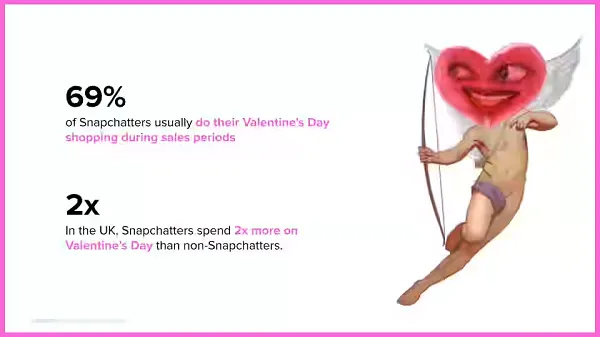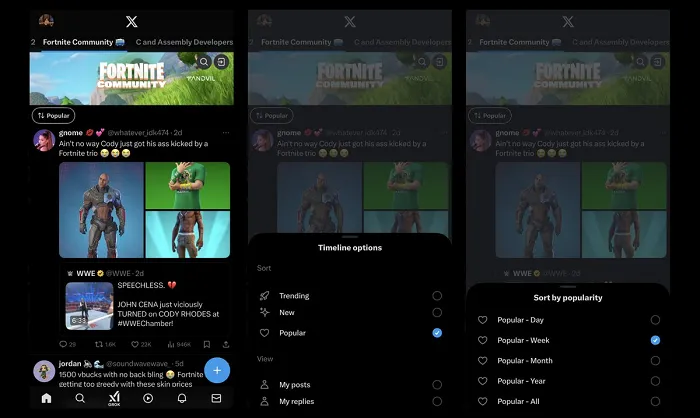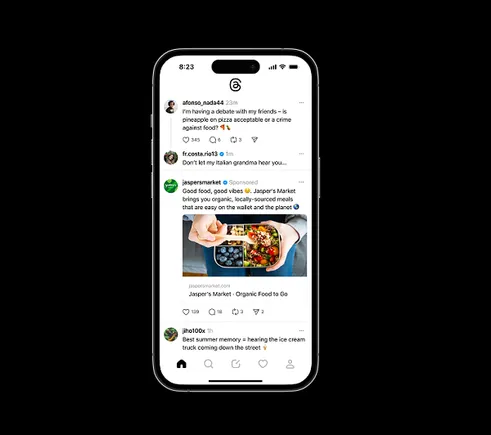5 best CRMs for utilities in 2025
Water, electricity, and heat are complicated enough. Add the responsibility of regulations and customer relations, and utilities companies are set up for some complex challenges. Managing customer relationships, responding quickly to outages, integrating billing systems, and maintaining regulatory compliance...

Water, electricity, and heat are complicated enough. Add the responsibility of regulations and customer relations, and utilities companies are set up for some complex challenges. Managing customer relationships, responding quickly to outages, integrating billing systems, and maintaining regulatory compliance — a customer relationship management system (CRM) for utilities can make these things easier. In a recent study by Capterra, 45% of businesses said their sales revenue improved by using effective CRM software. In fact, Reposit Power, a trailblazer in the Australian energy market, leveraged HubSpot CRM to implement an efficient workflow engine and sustain a remarkable 15% month-to-month growth rate. In this article, we’ll compare the top CRMs for utilities companies in 2025. You’ll find: Table of Contents A CRM for utilities companies helps manage customer accounts, service requests, and communication across teams. It centralizes data and automates processes like billing updates, outage notifications, and field service scheduling. HubSpot can be an extremely flexible CRM for utilities companies, supporting utilities-specific functions like outage workflows, billing integrations, and regulatory tracking. CRM Best For Key Features Pricing Average Rating HubSpot Mid-size to enterprise utilities needing strong automation Service pipelines, outage workflows, billing integrations Free plan, paid starts at $20/user/month 4.5/5 Salesforce Energy & Utilities Cloud Large utilities with custom needs AI tools, service cloud, field service Custom pricing 4.3/5 Oracle Utilities Public utilities with regulatory requirements Smart meter data, rate management, compliance tools Custom pricing 4.1/5 Zoho CRM Small utilities looking for affordability Contact mgmt, automation, multichannel support Free, paid from $14/user/month 4.2/5 Microsoft Dynamics 365 Utilities with Microsoft stack Asset mgmt, workflows, integration with Teams/Outlook From $65/user/month 4.3/5 Best for: Mid-size and enterprise utilities companies wanting automation and customer visibility Best for: Large utility companies looking to be more sustainable Best for: Government or public utilities companies requiring robust compliance features Best for: Small or new utilities with simple needs Best for: Utilities companies with robust needs already using Microsoft tools Why is using a CRM for utilities companies so valuable? Benefits include: When someone’s power, water, or other utilities go out, time is of the essence. A great CRM for utilities can reduce inbound call volume during emergencies and keep customers informed in real time through digital mediums. With HubSpot's automation and unified data, this is a breeze. Centralized data helps teams make quicker, data-driven decisions with a unified view of each customer. The more details you have about a customer, the more personalized each interaction with them can be. For instance, HubSpot unites marketing, sales, and service information. Unified data also leads to better support and allows you to be more proactive with your support. With databases like HubSpot's tracking critical service data, you can anticipate customers' needs before they happen, creating a better experience. Utilities can come with complicated rules and regulations that can be extremely costly if violated. A suitable CRM simplifies audit preparation and ensures accurate documentation for public utility commissions. HubSpot's custom and host of integrations can help you keep track of this critical information with automated reporting. The cohesion created by a CRM (especially one as integrated as HubSpot) frees up staff time and reduces operational costs by eliminating manual processes. In fact, Zippia found a CRM can boost revenue by 29% and increase forecasting accuracy by 32% and productivity by 40%. To reap these benefits, there are some key features you should be looking for: To choose the best CRM for your utilities company, follow these simple steps: Document all the key stages of your customer lifecycle—like new service setup, maintenance tickets, and emergency support—to identify gaps and bottlenecks. Make a checklist of your core needs by involving the frontline service, billing, and IT teams to ensure the CRM supports day-to-day operations. Demo multiple platforms and gather feedback from real users on how intuitive the interface is and how long onboarding typically takes. Run cost projections for different pricing tiers based on user count, feature needs, and expected growth to avoid outgrowing your CRM too quickly. Look for modular solutions that let you add tools as needed, with strong support, integrations, and scalable infrastructure. While there are some CRMs built specifically with utilities in mind, HubSpot offers flexibility and affordability that can make it a smart choice for companies of all sizes. Just look at Reposit Power once again. HubSpot helped the company scale operational workflows while supporting compliance and real-time alerts. While it depends on your company’s specific size and needs, HubSpot can be customized to offer a highly effective mix of automation, ease of use, and pricing for most mid-size to large utilities. Some alternatives may offer more utility-specific customization for larger enterprises, but users note they can be very technical. Yes. HubSpot can be used by utilities companies to improve service speed, customer communication, and regulatory tracking. In fact, Reposit Power used HubSpot to future-proof their tech stack and redefine their distribution model leading to a 50x increase in sales activity, amongst other things. Pricing ranges from free (Zoho, HubSpot) to enterprise tiers with custom pricing (Salesforce, Oracle). Most start around $20-$65/user/month. HubSpot is trusted by utilities teams to streamline service, improve response times, and connect customer data. Even for a complex industry like utilities, it offers flexibility, pricing accessibility, outage communications, and robust integrations to help any firm accomplish their goals and improve service. Ready to see how HubSpot can work for your utilities business? Get started with HubSpot today.
What is a CRM for utilities companies?
CRM for Utilities Companies Comparison Table
Best CRM for Utilities Companies
1. HubSpot

Key HubSpot Features
Unified service pipeline management: HubSpot’s unified pipeline for outage resolution streamlines support ticket flow by giving teams a clear view of every open issue from submission to completion. The data also appears in each customer’s contact record.
Automated outage communications: With HubSpot's automated communication abilities, utilities can automate customer alerts across email and SMS, ensuring consistent updates during service disruptions.
Custom integrations: While not built specifically for utilities companies, HubSpot has hundreds of integrations in its ecosystem, including those for billing software, Geographic Information System (GIS) mapping tools, and field service platforms via APIs and native apps.
HubSpot Pricing
Free CRM available
Starter: $20/user/month
Professional: $90/user/month
Full pricing
2. Salesforce Energy & Utilities Cloud

Key Salesforce Features
AI-driven service insights: Uses predictive analytics to flag potential service issues, recommend next-best actions, and deliver quotes and rates faster.
Field technician scheduling: Allows dispatchers to assign work orders, track field progress, and optimize routes in real time. It can also help deliver safe field operations by managing assets and work execution to reduce costs and risks and improve plant efficiency whilst lowering maintenance costs and downtime.
Customer account lifecycle tools: Manages everything from new service onboarding to outage history and rate plan adjustments.
Salesforce Pricing
Starts at $250/user/month
Pricing details
3. Oracle Utilities

Key Oracle Utilities Features
Smart meter data integration: Ingests data from meters to enable usage-based alerts, billing, and consumption forecasting.
Detailed task and service management: Oracle’s in-app service features can facilitate detailed tracking of suppliers and assign tasks, with clear role divisions and a user-friendly interface. This helps streamline tasks, improve efficiency, and optimize operations
Regulatory reporting: Helps utilities comply with government mandates through automated report generation and audit trails.
Oracle Pricing
Enterprise licensing, custom pricing
Pricing overview
4. Zoho CRM

Key Zoho Features
Contact and lead management: Centralizes all customer data and communication in one easy-to-navigate interface that anyone on your team can access.
Custom workflow automation: Builds logic-based flows for billing reminders, service updates, or internal handoffs. This can likely be customized to work for outage alerts, among other things.
Omnichannel communications: Consolidates customer messaging across email, phone, chat, and social media to one platform; no need to jump around a bunch of tools to know what’s going on.
Zoho Pricing
Free for up to 3 users
Paid plans from $14/user/month (30-day trial available)
Full pricing
5. Microsoft Dynamics 365

Key Dynamics Features
Seamless integration with Excel, Outlook, Teams: As a part of the Microsoft ecosystem, this CRM connects with products like Office 365 and Azure to simplify data sharing and automation across departments. If your team is already using them, this saves you significant effort and difficulty.
Cloud field service and asset tracking: Being cloud-based, Dynamics 365 enables users to access the system from any device in any location. This connects customer service and maintenance teams without hassle to reduce downtime and streamline service.
Case management workflows: Tracks customer issues and escalations with automation triggers for follow-ups and approvals.
Dynamics 365 Pricing
From $70/user/month
Pricing details
Benefits of CRM for Utilities Companies
Faster Outage Communication via Automated SMS/Email Updates
Centralized Data for Billing, Service, and Field Activity
Increased Customer Satisfaction With Proactive Support
Regulatory Compliance Through Built-in Reporting Tools
Efficiency Gains From Integrated Service Scheduling and Automation
5 Important Features of a CRM for Utilities Companies
How to Choose a CRM for Utilities Companies (Step-by-Step)
Step 1: Map your service workflows from outage reporting to resolution.
Step 2: Identify must-have features like field scheduling or billing sync.
Step 3: Compare ease of use, setup time, and learning curve.
Step 4: Evaluate pricing at current and future scale.
Step 5: Choose a flexible platform — like HubSpot — that grows with you.
Frequently Asked Questions about CRM for Utilities
What is the best CRM for utilities companies?
Is HubSpot good for utility companies?
How much does a CRM for utility companies cost?
Meet HubSpot, the Top CRM for Utilities Companies
Key Features
Automated outage communication workflows
Seamless billing and service integrations
Customizable dashboards for compliance tracking
User-friendly interface

 ShanonG
ShanonG 




























_1.jpg)

